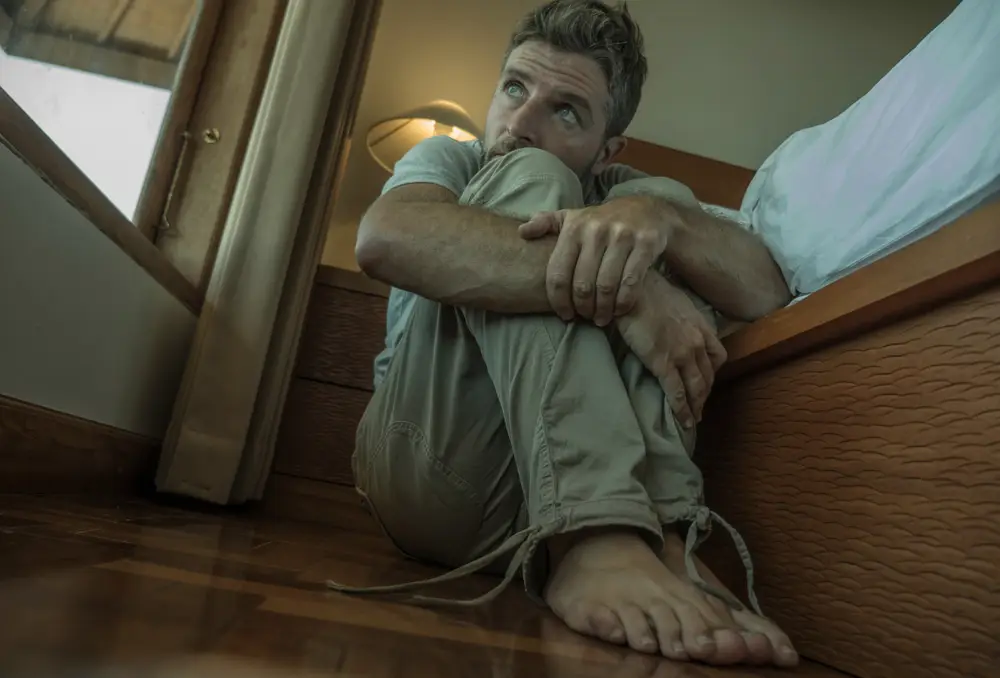Are You Struggling with Cocaine Addiction? Let’s Talk About It.
Cocaine addiction is more than just a habit—it’s a powerful hold that can take over your mind, body, and life. Maybe you’re starting to feel the effects on your health, your relationships, or even your sense of self. Or perhaps you’re unsure if what you’re experiencing is even addiction at all.
Whatever brought you here, know this: you’re not alone.
In this blog, we’ll explore everything you need to know about cocaine addiction—from the signs and side effects to the challenges of quitting and the treatment options available.
So, whether you’re seeking help for yourself or someone you care about, this blog provides insights, tools, and hope. So, let’s start!
Contents
What Does Cocaine Addiction Feel Like?

Cocaine addiction isn’t just about using the drug—it’s about how it grips every part of your life. It starts small: a burst of energy, confidence, or escape that feels almost magical. But over time, what felt like a choice becomes a compulsion, and stopping feels impossible.
What is Cocaine and How is it Used?
Cocaine comes in different forms, but the most common are:
- Powder Cocaine: A fine, white powder often snorted or dissolved and injected.
- Crack Cocaine: A crystal-like form that is smoked and delivers an intense but short-lived high.
The way cocaine is taken can affect how quickly it impacts your body. Smoking or injecting provides an immediate, intense high, while snorting leads to a slightly delayed but still powerful effect. Regardless of the method, the addiction potential is high.
- It feels like being trapped.
You may know the risks, feel the strain on your body, or notice the damage to your relationships, but the cravings don’t care. They demand your attention, pulling you back again and again, no matter how much you want to break free. - It feels exhausting.
The highs don’t last, and the crashes are brutal—emotionally and physically. You might feel irritable, anxious, or completely drained, but the thought of quitting seems even harder. It’s like running in circles, trying to escape but ending up back where you started. - It feels lonely.
Cocaine addiction often creates a wall between you and the people who care about you. Whether it’s out of shame, fear, or misunderstanding, you might find yourself withdrawing, leaving you to face this struggle alone. - It feels overwhelming.
The constant mental battle between wanting to quit and feeling like you can’t is exhausting. It can make everyday life feel unmanageable, as if the addiction is running the show.
But here’s the important part: you don’t have to stay trapped.
Understanding how cocaine addiction feels is the first step to breaking free from its hold. If any of this resonates with you, it’s a sign to reach out for help.
Are You Addicted to Cocaine? Take This Quick Self-Assessment
If you’ve found yourself questioning your habits, now is the perfect time to gain clarity.
Our free and judgment-free self-assessment is designed to help you reflect on your behaviors and identify potential signs of addiction. It’s simple, confidential, and takes just a few minutes to complete.
Don’t wait—click the link below to take the self-assessment now.
How Cocaine Affects Your Body and Mind

Cocaine might give an intense rush at first, but its effects come with serious consequences for both your body and mind.
Immediate Effects
- Euphoria and Energy Surges: A temporary boost in confidence and alertness, but it fades quickly, leaving you craving more.
- Increased Heart Rate and Blood Pressure: Your body goes into overdrive, which can lead to dangerous heart complications.
- Loss of Appetite: You may feel energized but forget to eat, leading to fatigue and nutritional deficiencies.
- Anxiety or Restlessness: While the high feels great initially, it’s often followed by intense agitation or paranoia.
Long-Term Effects
- Mental Health Decline: Prolonged use can lead to anxiety disorders, depression, and even psychosis.
- Addiction and Cravings: Cocaine rewires your brain, making it harder to feel pleasure without the drug and fueling compulsive use.
- Heart Problems: Chronic use puts immense strain on your heart, increasing the risk of heart attacks or strokes.
- Respiratory Issues: If you smoke cocaine, it can severely damage your lungs, leading to chronic breathing problems.
- Weakened Immune System: Long-term use can lower your body’s ability to fight off infections, making you more vulnerable to illnesses.
- Strain on Relationships and Work: Addiction often leads to missed deadlines, broken trust, and isolation from loved ones.
While cocaine’s immediate effects might seem exciting, the long-term damage can derail every aspect of your life—physically, mentally, and socially. If you’re noticing these signs, it’s time to explore ways to seek help and start recovering.
Why Do People Struggle to Quit Cocaine?

Quitting cocaine isn’t just about willpower—it’s a complex battle against the physical, psychological, and emotional grip of addiction. Many people want to stop but find it incredibly challenging, and here’s why:
1. Cocaine Changes Your Brain
Cocaine floods the brain with dopamine, the chemical that makes you feel pleasure and reward. Over time, your brain relies on cocaine to feel “normal.” This intense craving makes everyday pleasures feel dull, making it hard to quit.
2. Triggers Are Everywhere
People, places, or situations associated with using cocaine can trigger strong urges to use it again. For example:
- Social settings where cocaine was used.
- Stressful moments that lead to seeking comfort.
- Even songs or smells linked to past use.
These triggers can feel overwhelming, pushing you toward relapse.
3. Withdrawal Symptoms Make It Hard to Stay Clean
When you stop using cocaine, your body and mind react, often in painful ways. Withdrawal symptoms can include:
- Extreme fatigue or “crashing.”
- Intense cravings.
- Depression or irritability.
- Difficulty concentrating or sleeping. These symptoms can feel unbearable, driving many people back to cocaine for relief.
4. Emotional Dependence
For many, cocaine becomes a coping mechanism for dealing with stress, anxiety, or unresolved trauma. The idea of facing life’s challenges without it can feel impossible, creating a strong emotional barrier to quitting.
5. Fear of Losing Control
Quitting cocaine often means making big life changes—leaving behind social circles, facing financial issues, or repairing damaged relationships. These challenges can feel daunting and make staying addicted seem like the easier option.
Treatment Options: What Can Help You Quit Cocaine?

Quitting cocaine is challenging, but it’s absolutely possible with the right treatment and support. Here are some effective options to consider:
Therapy and Counseling
Working with a therapist can help you uncover the root causes of your addiction, manage triggers, and develop healthier coping strategies. Cognitive Behavioral Therapy (CBT) is especially effective for breaking addictive patterns.
If you’re looking for professional help, we at Mantra Care are here for you.
Our affordable online therapy sessions connect you with expert therapists who can guide you through recovery, all from the comfort of your home. Visit our website and book your trial online therapy session today!
Rehab Programs
Inpatient or outpatient rehab programs provide structured environments for recovery. These programs offer medical care, counseling, and peer support to help you stay focused and avoid relapse.
Support Groups
Groups like Cocaine Anonymous (CA) connect you with others who understand what you’re going through. Sharing experiences and learning from others can provide both motivation and accountability.
Medication-Assisted Treatment
While there’s no specific medication for cocaine addiction, certain medications can ease withdrawal symptoms, reduce cravings, or address underlying mental health issues.
Personalized Treatment Plans
Every person’s journey is different. A professional can tailor a treatment plan to your unique needs, combining therapies, lifestyle changes, and support systems to help you succeed.
Free Help For Cocaine Addiction
Cocaine addiction can feel overwhelming, especially when it starts taking a toll on your mental health. Sometimes, it’s not just the addiction but the loneliness that comes with it—the feeling that no one truly understands what you’re going through. If you’re carrying this weight alone, you don’t have to anymore.
MyMindMantra offers FREE access to compassionate listeners who are here to support you without judgment. Whether you’re feeling lost, overwhelmed, or just need someone to listen, we’re here for you.
- No Waiting—Get Support Immediately!
- Completely Confidential—Share Your Feelings Without Fear.
Just click the link, download our app, and tap on “Talk with a Listener.” It’s free, it’s easy, and it’s your first step toward feeling heard and supported.
